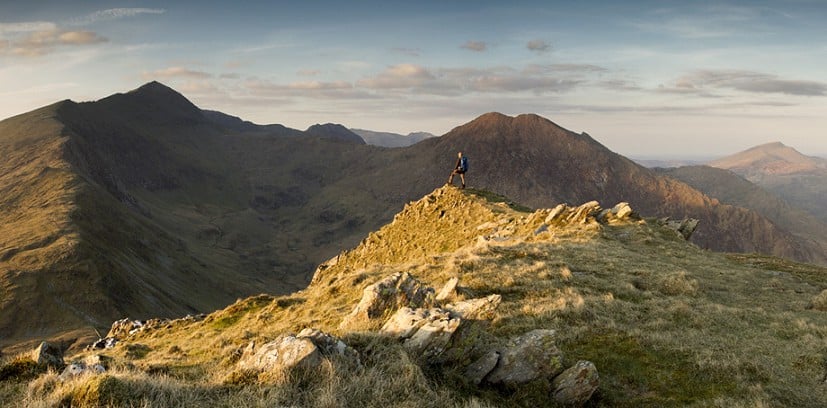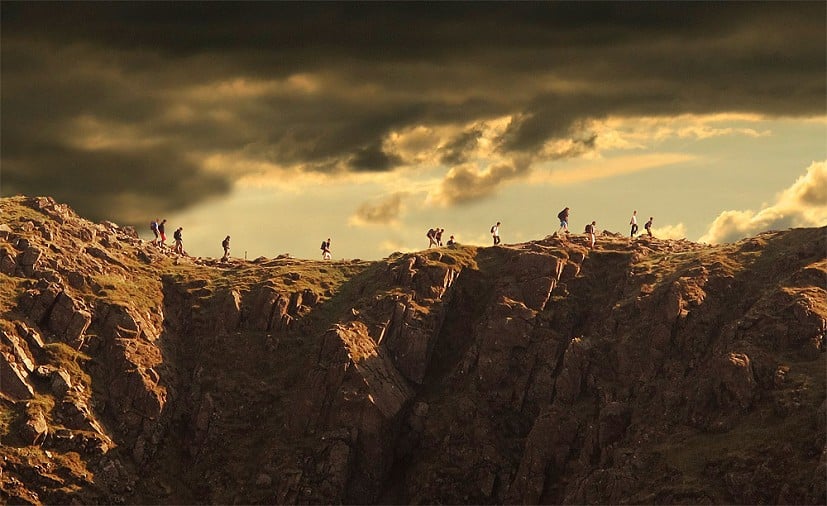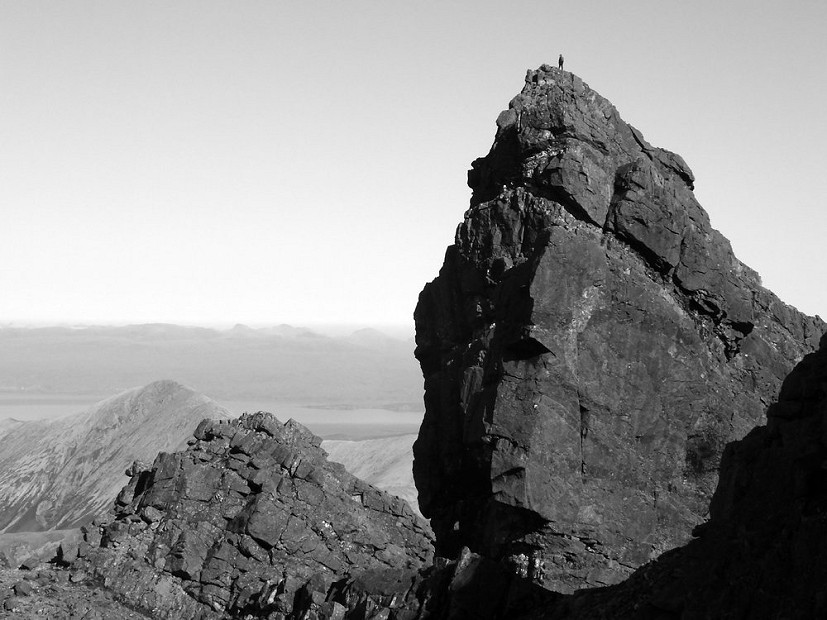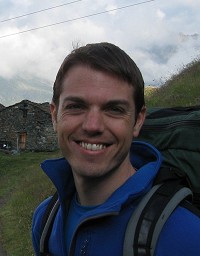How To Walk and Camp Alone
Spending time alone outdoors is great, reckons Gilad Nachmani. But if you're new to solitary walking it might seem a daunting idea, so here's his advice for first time soloists.
Last Easter I was sitting on top of Thornthwaite Crag enjoying one of the most amazing sunsets I have seen in my life. Deep purple, pinks and oranges blazing over the Cumbrian fells, darkening them, the way only a cold night can. And I had it all to myself. That night I spent a quiet and cold night tucked in my sleeping bag, in my tent, having the good night's sleep that comes after a day of walking. All that wouldn’t have happened if I hadn't gone outdoors by myself; I couldn’t have had my own time and rhythm, my peacefulness and quiet if it wasn’t for camping solo on Thornthwaite Crag.
Walking in the UK is such a social event and I’m always surprised when I turn a bend in the trail and see a 35 -strong group coming down the hill. Thirty five! As much as I enjoy sharing the experience, the conversation and the ability to rely on others if things turn bad, there is no greater joy outdoors than some time of solitude.
My time as a solo walker and camper was never planned, it just happened unexpectedly when a travelling mate was too lazy to join me on a hike in Chile (the Villarica traverse). It was a couple of days after we came back from walking in Huerquehue park and I was ready to go back out, to try my first longer, wilder trail. I decided that I’d walk it myself. Five days later, plus an extra day to climb Lanin with a Dutch guy I met at the bottom of the volcano, I realised that I had gotten a taste of something I never knew existed: solitude in nature.
"As much as I enjoy sharing the experience, there is no greater joy outdoors than some time of solitude"
After that sense of the freedom of walking and camping by myself, it became almost a problem to share nature with others again; it was slightly out of sync. I still enjoy spending time outdoors with friends, family or random people I meet, but then it just becomes a different experience, no worse or better, just different. For the sake of argument let’s compare the two, the social vs the solo experience:
Outdoors with others
Pros:
- You can share the experience with another person
- The responsibility is not just yours and you are not the only one to blame (for the mistakes in navigation, bad food, farting in the tent)
- When you are tired or have had enough or are just going through the 3rd day hump, you have someone to pick up your spirit and help you go through the rough patch (or just for commiserating)
- Competition (don’t deny it, we all do it)
- Share the load of food, shelter and other items to make the trip lighter
- There is someone to take your picture so you won’t end up with weird selfies/timer shots
Cons:
- You have to stop when they need to pee or rest
- Your partner is too slow/fast and you just can’t stand it
- There is always a need for a conversation or you might get awkward silences
- People stay away from you so they won’t “interrupt”
- Decisions are made together even if they are not always what you wanted (it is called compromise)
- They fart in the tent that you share!
A solo adventure
Pros:
- The ultimate freedom – from where to camp to pace, breaks or even where to go, it is all up to you
- There is a lot more room in the tent and you can spread your things everywhere
- No one makes stupid navigation errors and argues about it with you (unless it is you...)
- When you are camping, you can just read a book, or look at the sunset or just lay down, no need to entertain anyone else
- Other walkers and locals will be so happy to chat with and share a good story or a cup of tea
- It is only your farts in the tent!
Cons:
- If you made a mistake it is all on you
- You might get lonely, especially on longer trips
- No one is there to look at that amazing sunset with you
- Camping becomes too practical; it is all about doing things efficiently
- When you've had enough or the climb is really endless, no one is there to give you a boost
- You have to carry everything
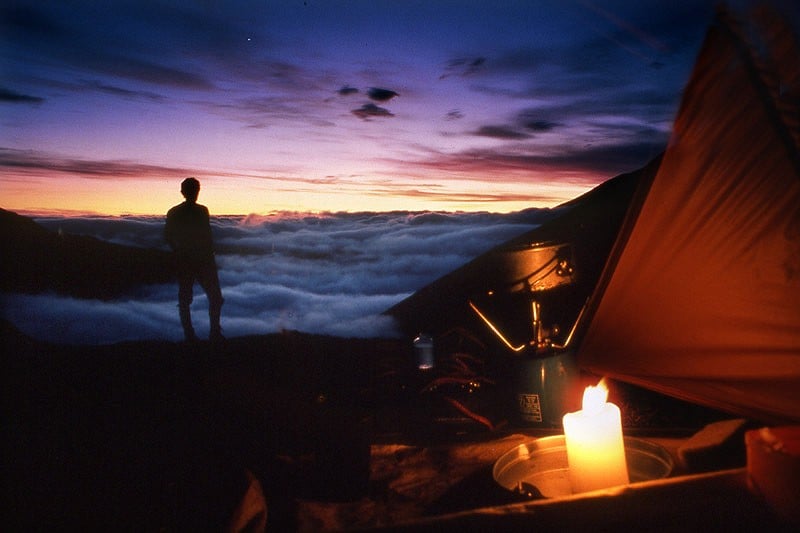
At the end of the day both sharing you adventure or choosing to do it by yourself are great, but I’m still a supporter of the solo adventure, even just for once.
Setting out on your own?
Camping by yourself can be intimidating, lonely and a little overwhelming. When you reach camp there is a lot to do: finding a place to camp, water to take care of, dinner, tent building, setting your bed and among all this trying to relax and enjoy where you are. I find that sometimes (well, most of the time), it is easier to camp in a completely isolated place, far away from other people, making nature the only “danger” rather than adding human behaviour to the stress.
For a first try in solo walking and camping I recommend that you pick a walk that you know, that is fairly isolated (don’t camp along the South Downs Way for instance) but still accessible. So how to make it work?
- Pack well and pretty light
- Add a few comforts to make the evening more pleasant – a drink, a book, some nice pyjamas and some light (like the Alpkit Glowe) make a camping experience very nice
- Pack an extra collapsible container that holds at least 2 litres of water for the night.
- Aim to camp in a wooded area, as you will be seen less and there is something comforting about the presence of trees, almost like protection
- Know where you are aiming to camp and plan to have enough water. If there is no water source nearby, fill the water container (see above) at the last water place before camping
- Don’t try new foods when camping. If you are new to camping buy double portions of the planned menu and try it at home. It is not nice to learn in the middle of nowhere that that freeze dried meal didn’t agree with you
- Make sure to place your tent in a place that lets the sun hit the tent early, like the eastern slope of a ridge, or the eastern edge of a tree grove
- Accept the fact that you will be going to sleep early and waking up early, and plan things accordingly
- Your first night in every trip (even if you have done dozens so far) is always a little sleepless; don’t get stressed about it, your body will get what is needed after a long day of walking
Beyond all this, a long solo trip is really just like going for a day walk. Be prepared for the weather, have emergency supplies (from shelter to food) and only go out if you are confident in your navigation and emergency skills.
When you do know where you will be camping, let someone close know the location, and your planned route. This is just a precaution and if you have a partner waiting at home it will do a great deal to keep them calmer and more supportive.
One last thing: walking or camping solo are amazing experiences, and great for your self esteem and confidence. But if you try it and feel this is not for you, just pack up and head back. There's no need to force it first time round!
About Gilad Nachmani
Gilad is an ardent lover of all outdoor activities, outdoor gear and sleeping under the stars.
When he became a father he decided not to let it go, and a balancing act of outdoor adventure-ism with fatherhood started. He also works in the outdoor trade and has over 10 years experience as an industry insider with insights about gear and how to use it better.
For more from Gilad see his blog Outdoors Father
